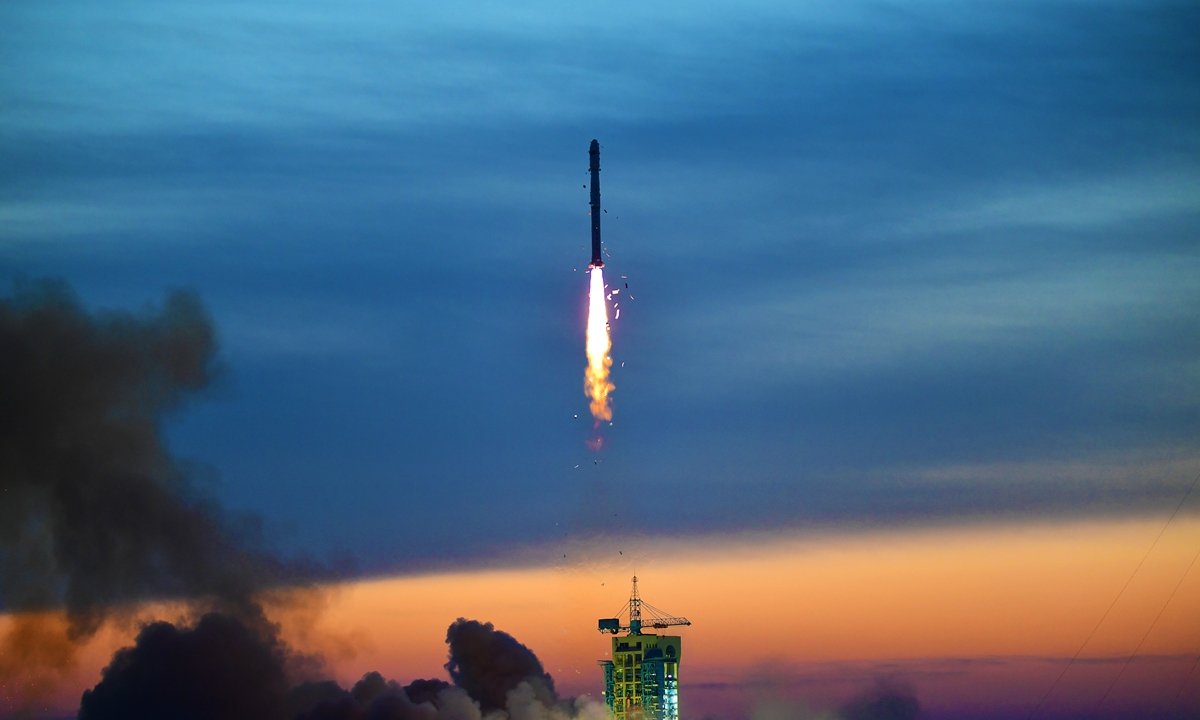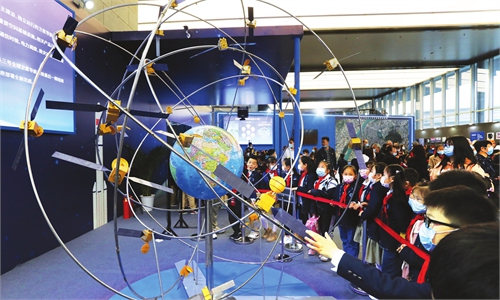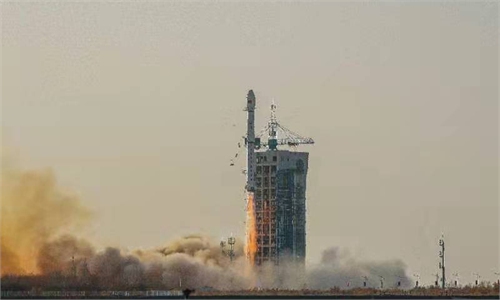China’s commercial space sector picking up momentum, firms’ financing expected to double in 2022: report

A Long March-4B rocket carrying the Shijian-6 05 satellites blasts off from the Jiuquan Satellite Launch Center in Northwest China, on Dec 10, 2021. Photo: Xinhua
As China's commercial space sector has entered a fast development track after the accumulation over past few years, start-ups are attracting more financing along with their robust growth. It is expected the full year of 2022 could see the total financing double from the level of last year, industry analysis pointed out.Jiangsu Deep Blue Aerospace Technology Co, a commercial aerospace start-up providing commercial launch services, on Tuesday completed an A plus round of financing, the second time after three months following its A round of financing worth nearly 200 million yuan ($31.5 million) in January.
The capital raised will be used to speed up research and development (R&D) of reusable launch vehicles for the company's Nebula-1 liquid rocket, the development of the Thunder series engine and the 3D printing additive manufacturing process, the company said.
Different from other rocket firms, Deep Blue has focused on R&D of reusable rockets capable of lifting small satellites to low-Earth orbit and returning for a landing on Earth, the technology direction of which is deemed as having huge commercial value in the future.
In the first three months of this year, financing of China's commercial aerospace field ushered in a good start, witnessing at least 21 related companies announce their financing, with a total disclosed amount exceeding 3.73 billion yuan, according to latest statistics by China's top smart industry media Zhidongxi.
The domestic commercial space sector is expected to witness total financing scale double year-on-year in 2022 based on the relatively low base last year when 37 firms announced financing of 6.45 billion yuan in total.
Among the 21 firms, those related with compete rocket production took the largest proportion.
"Chinese private firms, especially those established as the first-generation launch start-ups in 2015, are now at the ascending period, thus their financial scale should accordingly go up with their evaluation climbing," Lan Tianyi, founder of Beijing-based Ultimate Blue Nebula Co, a space industry consultancy, told the Global Times on Tuesday.
The year of 2022 is also anticipated to witness more milestone launch events in the commercial space sector compared with the past few years. "Those events, especially successful launches, could act as effective catalysts in driving up investors' enthusiasm," Lan noted.
Zhuque-2, a new methane-liquid oxygen fueled rocket built by Chinese private company Landspace which is believed to be the strongest rocket developed by a Chinese private company, is set to make its maiden flight this year.
In March, six satellites produced by Beijing-based start-up GalaxySpace and a commercial remote sensing satellite were launched by a Long March-2C carrier rocket and entered their planned orbits, forging the nation's first low-Earth orbit broadband communication test constellation.
Most of China's private aerospace companies were established after 2015. Despite of a short period, they have been catching up quickly over recent years in terms of technology, said Huang Zhicheng, a senior expert on aerospace science and technology.
As favorable industry policies propel, more space-related firms are mushrooming in China. According to domestic corporate portal Qichacha, there are so far 95,000 space-related enterprises in China.
From 2017 to 2021, the annual registration of space-related companies exceeded 10,000. Prior to 2020, the number grew exponentially.
"Some domestic landmark events and national major deployment as well as the fast and strong promotion of space projects by leading private firms in other countries like SpaceX have all boosted morale of domestic commercial space firms," Lan noted, believing that the global competition in commercial space would become more fierce in the future.




